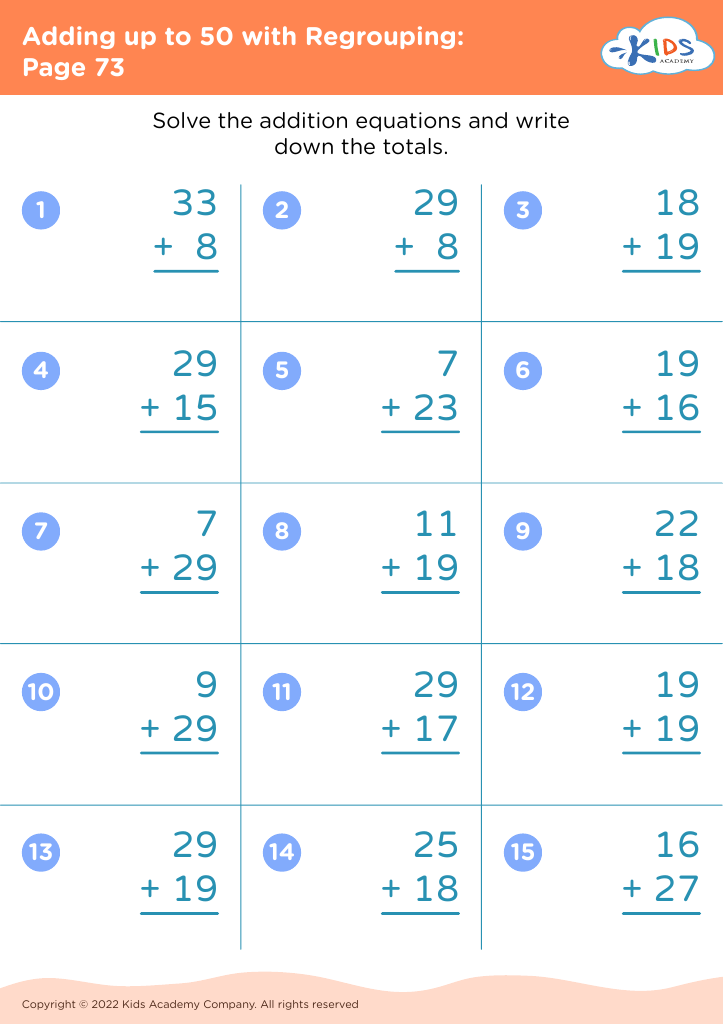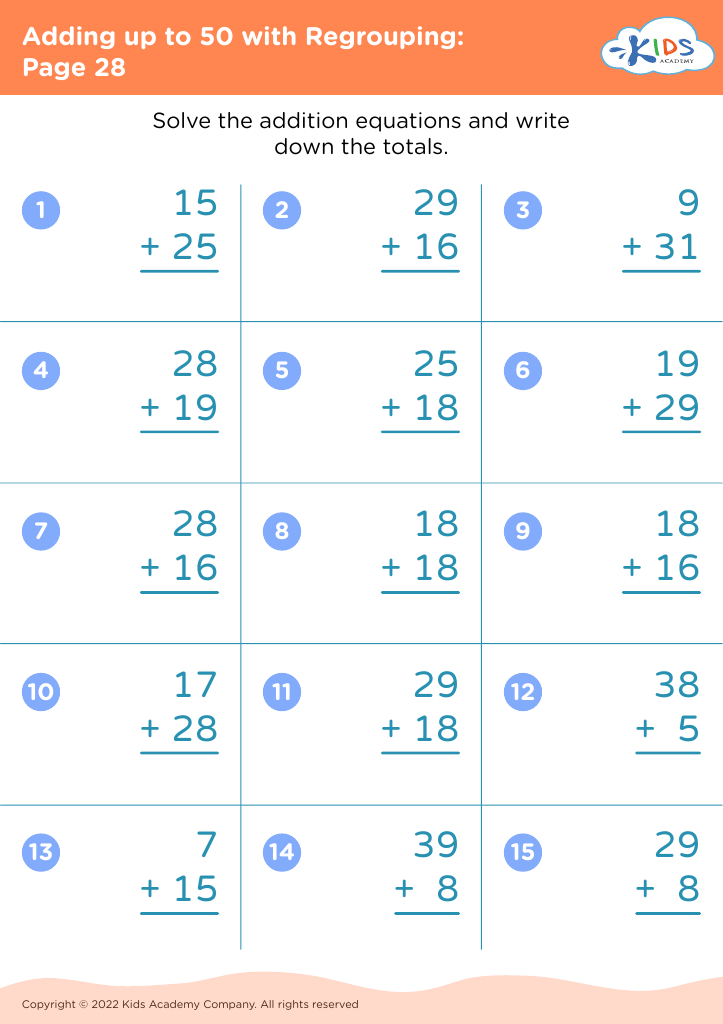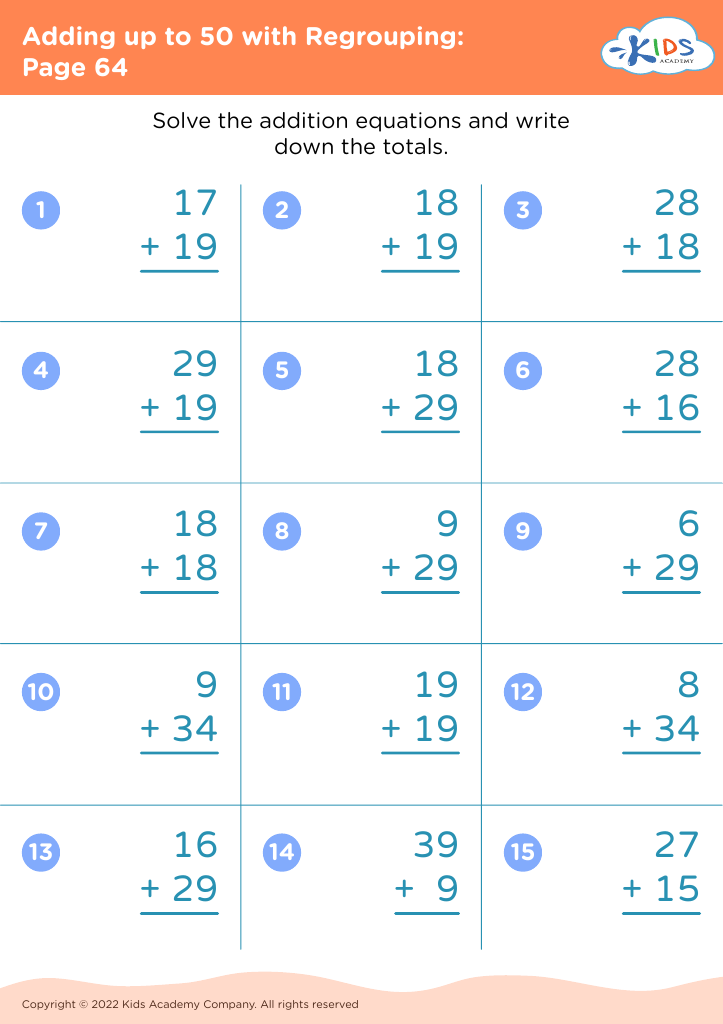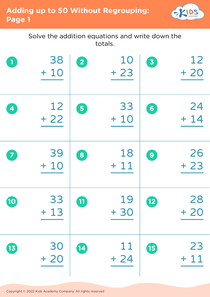Counting practice Adding up to 50 with Regrouping Worksheets for Ages 3-8
6 filtered results
-
From - To
Enhance your child's counting skills with our engaging "Counting Practice Adding Up to 50 with Regrouping Worksheets," designed for ages 3-8. These thoughtfully crafted worksheets provide a fun and interactive way to master addition while introducing the concept of regrouping. Kids will enjoy colorful illustrations and varied exercises that make learning enjoyable. Our resources are ideal for parents and teachers aiming to support early math development. By practicing addition up to 50, children will build confidence and a strong foundation in math concepts, preparing them for future success. Download and start exploring the world of numbers with your little one today!
Counting practice and the skill of adding up to 50 with regrouping are essential foundations for children aged 3 to 8, and it's critical for parents and teachers to prioritize this area of learning. First, mastering these skills enhances a child’s mathematical comprehension and fluency, enabling them to tackle more complex problems later on. At this developmental stage, children are naturally curious and eager to explore numbers. Engaging them with countable objects, visual aids, and interactive games makes learning exciting and effective.
Regrouping teaches children to reorganize numbers when they exceed a certain threshold, fostering critical thinking and problem-solving abilities. These skills promote a strong number sense, allowing children to understand place values effectively and establish a solid groundwork for arithmetic. Additionally, practicing addition and regrouping paves the way for future success in topics such as subtraction and early algebra, making mathematics less daunting.
For parents, this practice creates opportunities for bonding through shared learning experiences at home. For teachers, it enhances classroom dynamics, as students develop collaboration skills during group activities. Ultimately, early mastery of counting and addition ensures children grow into confident learners, ready to embrace new mathematical challenges.
















